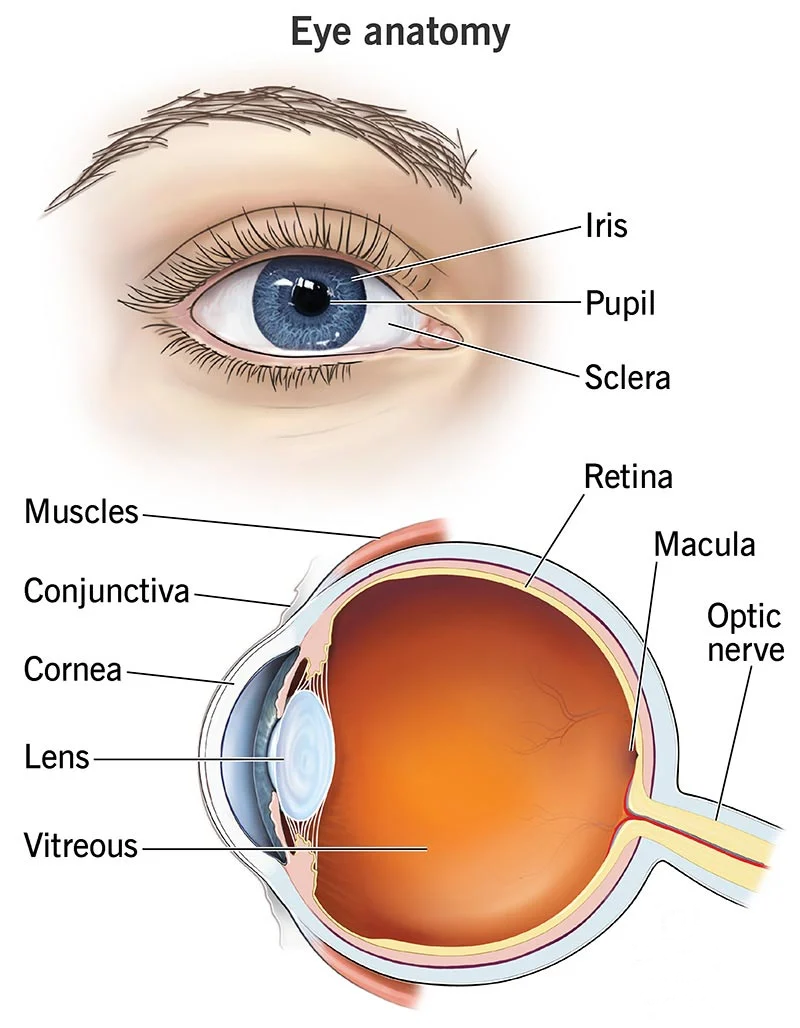Benefits of Lutein to Eyes in Preventing Eye Diseases

Introduction – Vision is one of the most important senses of our human body. Each of our daily activities is inseparable from vision, reading, communicating, driving, enjoying the scenery… Eye health plays a vital role in our lives. effect. But as we spend more and more time using electronic devices, the problem of eye fatigue is getting worse. People using computers, mobile phones, and tablets for a long time can easily cause eye fatigue, dryness, and discomfort. In severe cases, it may cause a variety of eye diseases such as: macular degeneration, cataracts, glaucoma, diabetic retinopathy, etc. Internal diseases. In addition to physical prevention measures such as taking a break from the screen, giving your eyes a moderate rest, and appropriately adjusting the brightness of the display screen, dietary supplements such as the carotene lutein, which is a natural oxidant, play an important role in eye health. The role of lutein in preventing eye diseases will be explained to us in this article.
Macular degeneration
Macular degeneration is one of the most common eye diseases in older adults. The disease causes loss of function in the central area of the retina (macula), causing people with macular degeneration to gradually lose vision, especially in the central field of vision. There are many factors that trigger macular degeneration, the most influential of which include reduced levels of retinal pigment and reduced blood flow to the macula (Ehrlich 2008; Ferri 2014). Macular pigment sits above photoreceptor cells, absorbs blue light and neutralizes free radical chemicals (Yanoff 2011 ; Chucair 2007; Ehrlich 2008; Nolan 2013; Carpentier 2009; Krinsky 2003). Macular pigments (lutein, zeaxanthin) protect photoreceptor cells from light damage (Krinsky 2003; Berg 2002).
Lutein acts as an antioxidant, helping to protect the eyes from free radical damage
A study published in the American Journal of Ophthalmology shows that the antioxidant lutein may prevent the onset of macular degeneration in older adults. In this study, participants who took daily lutein supplements had a 45% lower incidence of macular degeneration than those in the control group.
Lutein Protects the retina from UV damage
A study published in Investigative Ophthalmology & Visual Science found that people who took lutein supplements were significantly more resistant to UV rays. In experiments, taking lutein can double the lutein content in the retina of the eye, effectively preventing ultraviolet damage to the retina.
Lutein can improve vision, especially against macular degeneration
According to research published in the “Journal of Ophthalmology,” daily intake of 10 mg of lutein can significantly reduce the risk of macular degeneration in older adults. Study results suggest that lutein supplements may improve vision in the macular area and slow the progression of the disease.
Cataract
Cataracts are caused by protein opacity, reduced transparency, light blockage, abnormal metabolism and oxidative stress in the lens part of the eye. Normally the lens of the eye is transparent, allowing light to pass through and focus on the retina. During the formation of cataracts, the protein in the lens will undergo structural variation and agglomeration, causing the lens to become turbid and reduce the transparency of the lens. Light will be scattered when passing through the lens, making vision blurred, and even blocking the light entering the eye from the cornea. Optical fibers cause the image on the retina to be blurred or damaged, affecting the perceived clarity and sharpness. As the transparency gradually decreases and cataracts intensify, the metabolic process of lens cells may become abnormal, leading to reduced cell function. At the same time, the lens is affected by oxidative stress, causing oxidative damage and lipid peroxidation within the cells, which will accelerate the aging and turbidity of the lens. In the process, the vision will become worse and worse.
Lutein may reduce risk of cataracts
A meta-analysis study published in the International Journal of Environmental Health Research found that supplementing with lutein and other carotenoids may reduce the risk of cataracts. Research shows that lutein has a protective effect against cataract formation, especially during long-term treatment. According to another study, 3,000 participants were followed for up to 10 years, and the results showed that participants who consumed more than 10 mg of lutein per day had a 30% lower risk of cataracts than those who did not. For patients who already have cataracts, experimental results show that lutein supplements may slightly slow down the progression of cataracts in individuals who already have cataracts. However, the specific effects and dosage still require further study.
Glaucoma
Glaucoma is a chronic eye disease usually caused by increased intraocular pressure that damages the optic nerve, which is one of the important nerves that transmits light signals received by the eye to the brain. Because there are no obvious symptoms in the early stages, symptoms of vision loss usually have reached a severe stage. The formation of glaucoma is related to the circulation disorder of the aqueous humor in the eye. The aqueous humor in the eye is a clear liquid that fills the front and back chambers of the eyeball. Due to the poor flow and drainage of the aqueous humor in the eye, the intraocular pressure increases and damages the optic nerve. Glaucoma will form. Although elevated intraocular pressure can lead to the formation of glaucoma, not all people with high intraocular pressure have glaucoma. There are also other factors such as blood circulation and family inheritance. Approximately 2.2 million U.S. adults have glaucoma (Eichenbaum 2012)
Lutein can reduce the incidence of glaucoma
A randomized controlled trial study published in “Ophthalmology” shows that long-term supplementation of lutein and zeaxanthin can significantly reduce the risk of primary open-angle glaucoma. Studies show that taking lutein and zeaxanthin can reduce the risk of glaucoma by 25%. Glaucoma patients usually have increased oxidative stress and inflammatory responses, and the antioxidant and anti-inflammatory effects of lutein can help reduce these symptoms, thereby reducing the risk of glaucoma. In addition, studies have shown that lutein can promote the release of aqueous humor in the eye, thereby further reducing intraocular pressure and preventing or slowing the progression of glaucoma.
Diabetic retinopathy
Diabetic retinopathy is an eye complication caused by diabetes. It mainly affects the retina of the fundus of the eye, and diabetic retinopathy is one of the main causes of blindness. Diabetic retinopathy can be divided into two types: non-proliferative diabetic retinopathy and proliferative diabetic retinopathy. The former is retinal edema or hemorrhage caused by intravascular blood leakage or microvascular occlusion. The latter is the formation of new blood vessels on the retina, and these blood vessels are easily ruptured, causing bleeding and possibly scarring, leading to vision loss in severe cases.
Lutein may reduce risk of diabetic retinopathy
The antioxidant properties of lutein help reduce oxidative damage caused by high blood sugar. It can also reduce inflammatory damage to the retina, which plays a key role in the occurrence and progression of diabetic retinopathy. In addition, lutein also has the function of strengthening retinal capillaries, thereby reducing the incidence of related lesions.

The picture refers to clevelandclinic 2022
As a natural pigment in the macular area of the eye, lutein’s antioxidant and anti-inflammatory properties help protect eye health. Being able to neutralize free radicals and reduce oxidative damage to eye tissue is of great significance in preventing eye diseases such as macular degeneration, cataracts, and glaucoma. In addition, lutein can also reduce the inflammatory response of the eyes and reduce the degree of damage to brain tissue, which is very helpful in the prevention and intervention of eye inflammation-related diseases such as dry eye syndrome and conjunctivitis. At the same time, lutein can also enhance the function of retinal capillaries to promote blood circulation and nutrient supply, protect the eyes from ultraviolet damage, and help prevent eye damage caused by vascular diseases. For further research and use of lutein, Backvita Biotech Inc. has excellent results in this area and provides comprehensive technical information for communication. Here is their website: backvita.com.
Cited by
Debra Gordon, MS
() ()